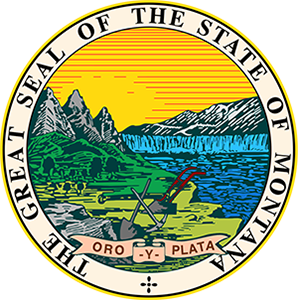FREQUENTLY ASKED QUESTIONS BY DISASTER SURVIVORS
There are several ways to contact FEMA to keep them updated about changes in your application:
- You contact them by calling
800-621-3362 - You can visit disasterassistance.gov
- Download the FEMA Mobile App to directly access your account.
The end of the individual assistance application period and the closure of DRCs does not mean the end of assistance to Montanans. The State of Montana and Montana Disaster & Emergency Services will continue to provide valuable resources to survivors at floodrecovery.mt.gov. This page is devoted to state resources currently available to survivors and will be where future endeavors are announced. Montanans can use that website to access information about disaster assistance for farmers and ranchers, access unemployment resources, and see updates on additional efforts to help disaster survivors.
FEMA assistance is not the same as insurance. FEMA assistance only provides funds for basic work to make a home habitable, including items such as toilets, roof, critical utilities, windows and doors.
FEMA disaster assistance is not taxable income. Accepting a FEMA grant will not affect your Social Security benefits, Medicare, Medicaid, Supplemental Nutrition Assistance Program (SNAP) or other federal welfare, social safety nets, and other entitlement programs.
You may need to submit additional information for FEMA to continue to process your application. Examples of missing documentation may include:
800-621-3362
- Proof of insurance coverage
- Settlement of insurance claims
- Proof of identity
- Proof of occupancy
- Proof of ownership
- Proof that the damaged property was your primary residence at the time of the disaster
You can appeal a FEMA decision within 60 days of receiving your determinations letter. An appeal letter must be postmarked within 60 days of the date of the determination letter. An appeal letter and supporting documents may be submitted to the agency via a FEMA online account or by mail or fax. FEMA will also want to see a settlement or denial letter from your insurance company to ensure there is no duplication of benefits. If your insurance company covers your losses, FEMA will not duplicate that coverage. If you still have unmet needs or damages that the insurance company does not cover, then FEMA may be able to provide you with assistance.
Disaster Unemployment Assistance (DUA) is a state managed, federally funded program that provides up to 26 weeks of unemployment benefits to individuals who have lost work as a direct result of a major natural disaster. For questions about your DUA claim, please contact the Montana Department of Labor and Industry at 406-444-3454
Free Disaster Legal Services are available to Montana survivors to assist with legal issues such as:
888-743-5749
- FEMA and SBA financial benefits;
- Home repair contracts and property insurance claims;
- Re-doing wills and other important legal documents destroyed in the disaster;
- Price gouging, scams or identity theft;
- Landlord or tenant problems or threats of foreclosure; and
- Disability-related access to federal, state and local disaster programs.
Money received through FEMA’s Individuals and Households Program does not have to be repaid. Loans from the Small Business Administration must be repaid.
The Montana Farm Service Agency’s Emergency Conservation Program does have additional services for farmers and ranchers. The application period for relief closed Sept. 2, 2022. Grants and loans are available to provide relief to repair damage caused by natural disasters. Residents in need of help with agricultural loss can contact their county’s local Farm Service Agency branch, or by contacting the USDA Farm Service Agency at 406-351-8016
During a disaster, many people have similar issues but have different needs. Your neighbor may have had less insurance coverage, or an item that was damaged may cost more to repair or replace. Each case is reviewed on its own information and is not compared to your neighbors. If you disagree with any FEMA decision you have the right to appeal.
If you are a renter, homeowner or business owner in a community that participates in NFIP, you may purchase an NFIP policy. To find out which policy may work best for you, please contact an insurance agent and ask if they sell insurance through NFIP.
If you believe you are the victim of a scam or are being targeted by scammers here are some steps to follow: If you have witnessed a potential scam or believe you are a victim of a potential scam, report it immediately to:
- Your local law enforcement authorities;
- The Department of Homeland Security Office of Inspector General’s hotline at
800-323-8603 - Montana Disaster & Emergency Services at
406-324-4777
- StopFEMAFraud@fema.dhs.gov;
- Fax:
202-212-4926 - Write to: FEMA Fraud and Internal Investigation Division, 400 C Street SW Mail Stop 3005, Washington, DC 20472-3005.
Contact the FEMA Mitigation Helpline at 833-FEMA-4-US (833-336-2487) for information on resilient building practices. Mitigation specialists are available Monday through Friday from 8 a.m. to 4:30 p.m. MDT. You can also email the team at FEMA-R8-Hmhelp@fema.dhs.gov.
